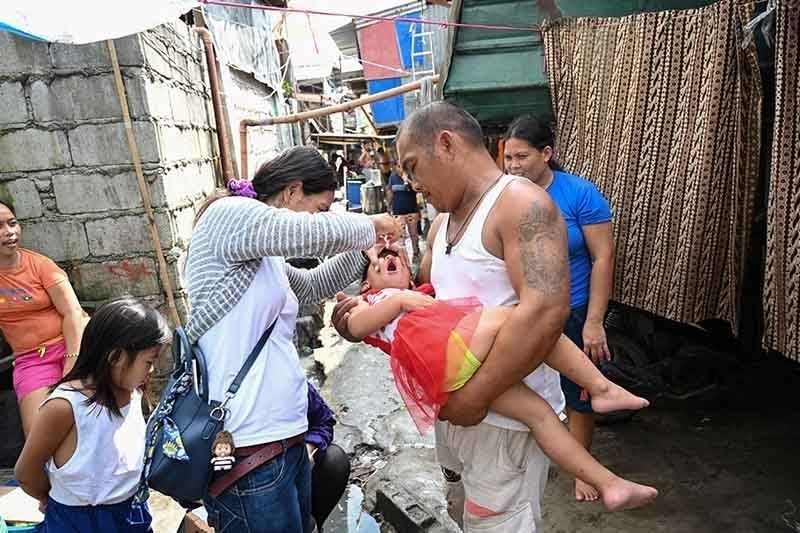UNICEF: 2 million Filipino kids at risk of missing vaccinations due to COVID-19 crisis

MANILA, Philippines — At least two million Filipino children could miss out on immunization against vaccine-preventable diseases as the new coronavirus pandemic forces movement restrictions and piles pressure on the country’s overburdened health system, a United Nations agency warned.
The United Nations Children’s Fund (UNICEF) stressed that life-saving health interventions such as immunization cannot be neglected as authorities attempt to contain the spread of the virus that has already infected 7,192 people in the Philippines.
“Vaccines protect children against harmful disease and death, saving up to three million lives every year, or more than five lives saved every minute of every day,” Dr. Wigdan Madani, UNICEF Philippines chief of health and nutrition programme, said.
The childhood immunization coverage in the country has been decreasing “sharply” from 87% in 2014 to 68% in 2019, exposing Filipino children to vaccine-preventable illnesses such as measles and polio.
Nineteen years after it was eradicated in the country, polio emerged in September last year. The resurgence of the disease came after the Philippines was hit by measles and dengue outbreaks early in 2019 stoked by falling vaccination rates.
UNICEF called on local government units with no known COVID-19 cases and those that have adequate immunization staff and vaccines to do vaccination activities if feasible.
It added that catch-up immunization and intensified vaccination activities that prioritize the poorest and most vulnerable children are needed once the COVID-19 outbreak in the country is under control.
“We must do all we can to support, empower and invest in their (healthcare worker) safety, training and well-being, as they encourage parents to vaccinate against preventable diseases that remain a very real threat to children,” UNICEF Philippines Country Representative Oyunsaikhan Dendevnorov said.
The UN agency said it is investing around P85 million in the next three years to help strengthen routine immunization and improve processes to procure and distribute vaccines.
- Latest
- Trending



























